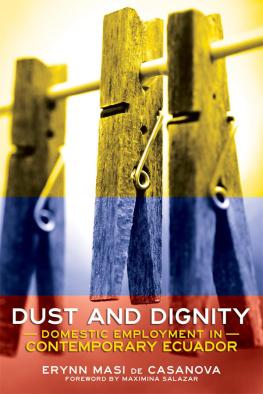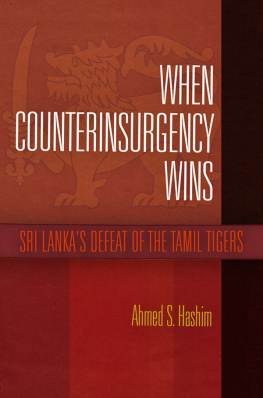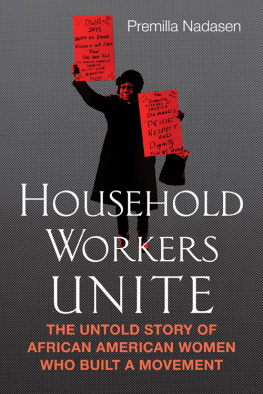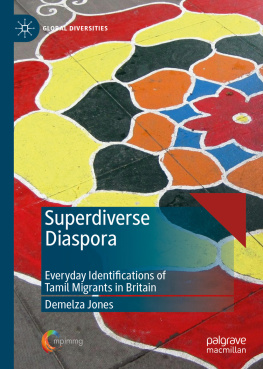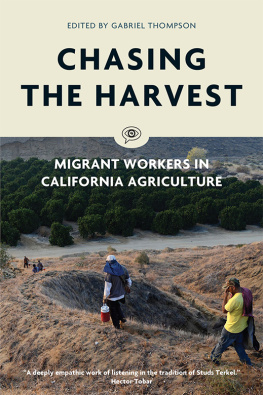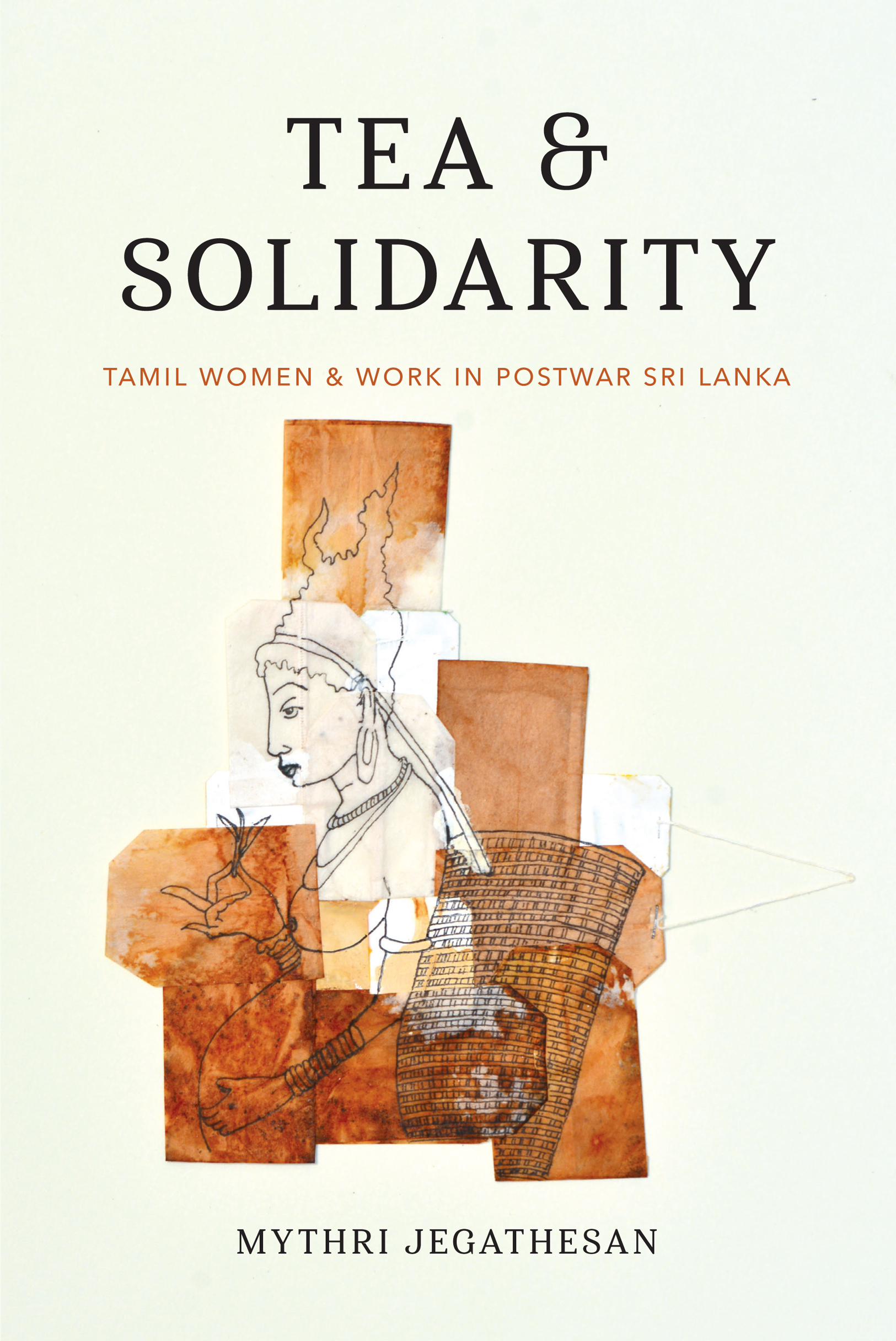Contents
Guide
Pagebreaks of the print version
DECOLONIZING FEMINISMS
Piya Chatterjee, Series Editor
Tea and Solidarity
Tamil Women and Work in Postwar Sri Lanka
Mythri Jegathesan
UNIVERSITY OF WASHINGTON
Seattle
Tea and Solidarity was made possible in part by a grant from the Office of the Provost at Santa Clara University.
Copyright 2019 by the University of Washington Press
Printed and bound in the United States of America
Composed in Chaparral Pro, typeface designed by Carol Twombly
23 22 21 20 19 5 4 3 2 1
All rights reserved. No part of this publication may be reproduced or transmitted in any form or by any means, electronic or mechanical, including photocopy, recording, or any information storage or retrieval system, without permission in writing from the publisher.
Photographs are by the author unless otherwise noted.
UNIVERSITY OF WASHINGTON PRESS
www.washington.edu/uwpress
LIBRARY OF CONGRESS CATALOGING-IN-PUBLICATION DATA
Names: Jegathesan, Mythri, author.
Title: Tea and solidarity : Tamil women and work in postwar Sri Lanka / Mythri Jegathesan.
Description: Seattle : University of Washington Press, [2019] | Series: Decolonizing feminisms | Includes bibliographical references and index. |
Identifiers: LCCN 2018046960 (print) | LCCN 2018051383 (ebook) | ISBN 9780295745664 (ebook) | ISBN 9780295745657 (hardcover : alk. paper) | ISBN 9780295745671 (pbk. : alk. paper)
Subjects: LCSH : Women plantation workersSri LankaSocial conditions. | Women, TamilEmploymentSri Lanka. | Women, TamilSri LankaSocial conditions. | FeminismSri Lanka. | Sri LankaSocial conditions21st century.
Classification: LCC HD6073.P4692 (ebook) | LCC HD6073.P4692 S725 2019 (print) | DDC 331.4089/9481105493dc23
LC record available at https://lccn.loc.gov/2018046960
Cover illustration by Hanusha Somasunderam
Cover design by Katrina Noble
The paper used in this publication is acid free and meets the minimum requirements of American National Standard for Information SciencesPermanence of Paper for Printed Library Materials, ANSI Z39.481984 .
To the workers and families on Sri Lankas tea plantations and my Amma and Appa
Contents
Preface
May 19, 2009. Delmons Hospital. Wellawatte, Colombo. I was waiting to see my great uncle who had suffered from a stroke the month before. As I sat with my aunt in the lobby, the Sinhala teledrama playing on the government-run television channel, Swarnavahini, cut abruptly for breaking news. Doctors, nurses, patients, and visitors momentarily forgot their social hierarchies and crowded together below the mounted television, their eyes fixed on the moving image. The initial recording, released by Sri Lankan security forces, lasted approximately fifteen seconds but had been looped to give the appearance of continual footage.
The screen filled with the image of a mans corpse. Its eyes were wide open, its body bloated, stiff, and stained with blood, looking as surprised as all of us watching. A blue handkerchief covered what appeared to be a severe trauma to the front of its head and separated the brown-skinned body from the color swatch of green lagoon-like grass, which was later confirmed to be Nanthikadal Lagoon in Sri Lankas northeast Mullaitivu district. In the islands North and East, Sri Lankan security forces and the Liberation Tigers of Tamil Eelam (LTTE) had been fighting intensely since the 2002 ceasefire agreement (CFA) between both parties. The 2002 CFA had temporarily halted fighting between both parties that formally began in 1983, but in December 2005 it officially broke down and fighting had resumed. On the television screen, soldiers milling around the body were smiling, talking quickly, and taking out their cell phones to capture images of the corpses pruned flesh and bloodstained fatigues. In the commotion, one solider checked for a pulse by grabbing the right inner wrist of the lifeless body, which had already been laid down on its back with the hands touching each other on a white sheeted carrier for the dead. Another soldier brushed away a fly, which had landed on the corpses chin.
The corpse was that of Velupillai Prabhakaran, leader of the LTTE. Rising to power in the 1970s, the LTTE fought the Sri Lankan government for nearly three decades, aiming to establish a separate state for Sri Lankan Tamils living in the islands North and East. Prabhakarans death had made official the end of Sri Lankas twenty-six-year civil war. Hours after the government of Sri Lankas military victory, then-president Mahinda Rajapaksa gave a speech to members of Parliament: We have removed the word minorities from our vocabulary. No longer are the Tamils, Muslims, Burghers, Malays and any other minorities. There are only two people in this country. One is the people that love this country. The other comprises the small groups that have no love for the land of their birth. Those who do not love the country are now a lesser group.
Celebrations of military victory fueled Sinhala nationalist euphoria in the weeks to follow, but as I carried out my anthropological research in Sri Lankas Hill Country in the immediate aftermath of the war I observed that minorities were anxious about their futures in the country. When would the state of emergency, constant surveillance, and militarization of civil society cease? Would demands for patriotism deny expressions of cultural difference, struggles for equal rights, and spaces for political dissent? Is the love of ones country or the art of politics, for that matter, so simple? What is the fate of minorities whose obligation to and love of their home are complicated and entangled in histories of oppression, trauma, and loss?
August 31, 2013 . Kthai Muthusamy has died in Colombo. Kthai was a sixty-eight-year-old woman from Adawaththa Estate, Lunugala, in Badulla, located in southeastern Uva Province. She had died from complications of cancer in a government hospital. In 1994 Sri Lankan security forces arrested Kthai under the 1979 Prevention of Terrorism Act and charged her with providing passage and shelter to LTTE cadres traveling from the eastern coastal town of Batticaloa through her resident tea plantation town.
Kthai was incarcerated for three and half years after the end of the war and for a total of nineteen years until she died in prison. While the end of the war created new possibilities for former LTTE leaders, Hill Country Tamil women plantation workers such as Kthai were not explicitly included as beneficiaries of such newfound social and political recognition. In the years immediately following the militarys defeat of the LTTE, former president Mahinda Rajapaksa led a largely majoritarian government and state in nationalist victory, focusing on large-scale plans for economic and militarized development in the North and East. But the government failed to effectively deal with the aftermath of the violence that Sri Lankas residents and displaced had experienced across ethnic, religious, and class lines. Judged against the unresolved disappearances in the North and East, war crime allegations, and urgent constitutional reforms, Kthais death was deemed relatively insignificant in Sri Lankas postwar political imaginary. As a Hill Country Tamil woman, she was a fragment and an anomalya loss with few stakes and little recognition among those invested in Sri Lankas national postwar plans for reconciliation, political reform, and transitional justice.
This anthropological study focuses on the social and legal peripheries within which Hill Country Tamil women workers, such as Kthai, reside and struggle for dignity and equity in the postwar Sri Lanka. Kthais detainment and death were deliberately unfinished afterthoughts of the transformation of Hill Country Tamils lives on the tea plantations and in Sri Lankan politics and daily life. The tea industrys desires to accumulate profit at the expense of cheap labor and the sociopolitical landscape of a minority community working to create a secure sense of belonging under unjust conditions keeps this limbo intact. This ethnography explores this ongoing work as a praxis of desire and solidarity that Hill Country Tamil plantation workers and their families take on in their daily lives.


